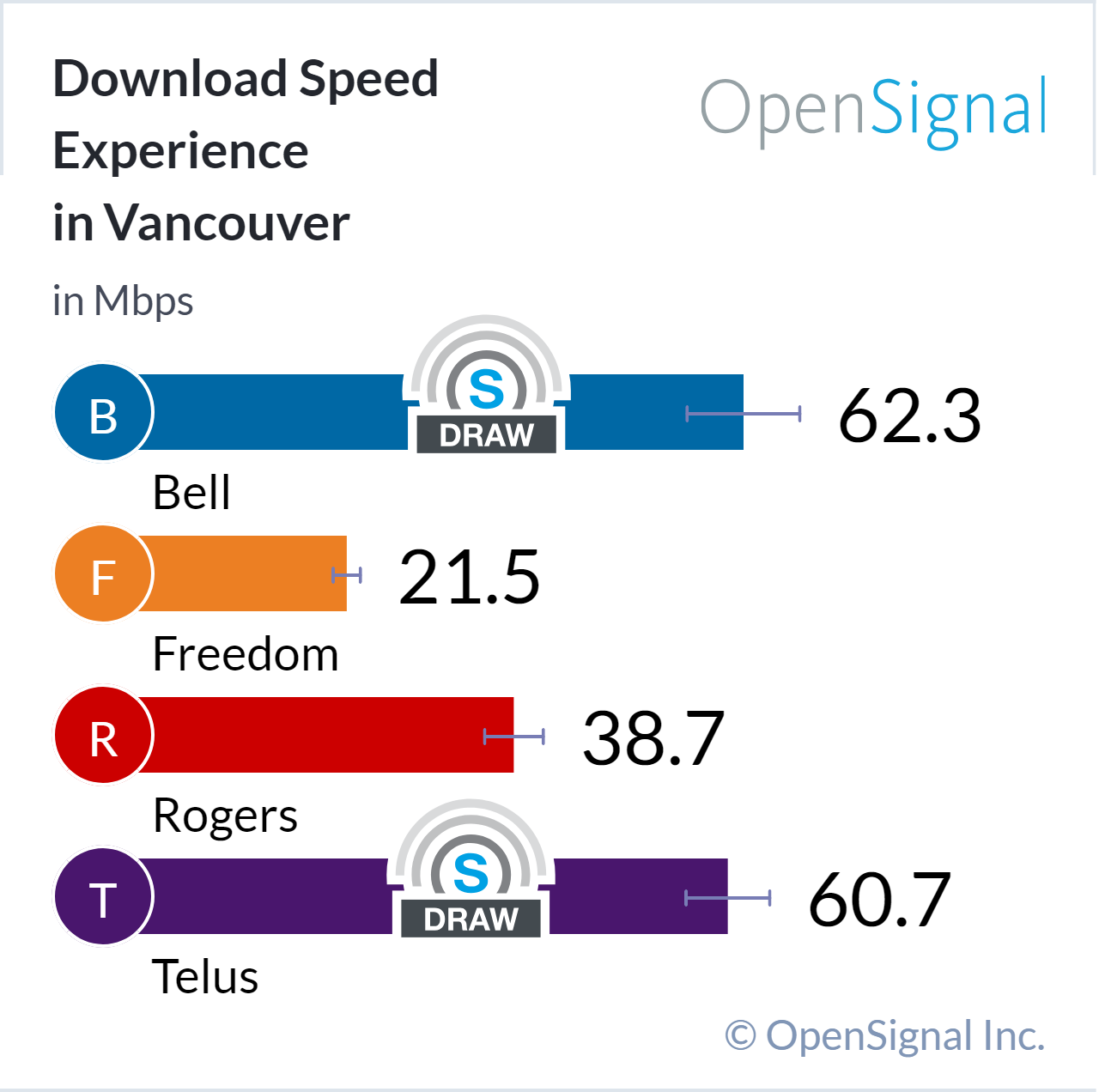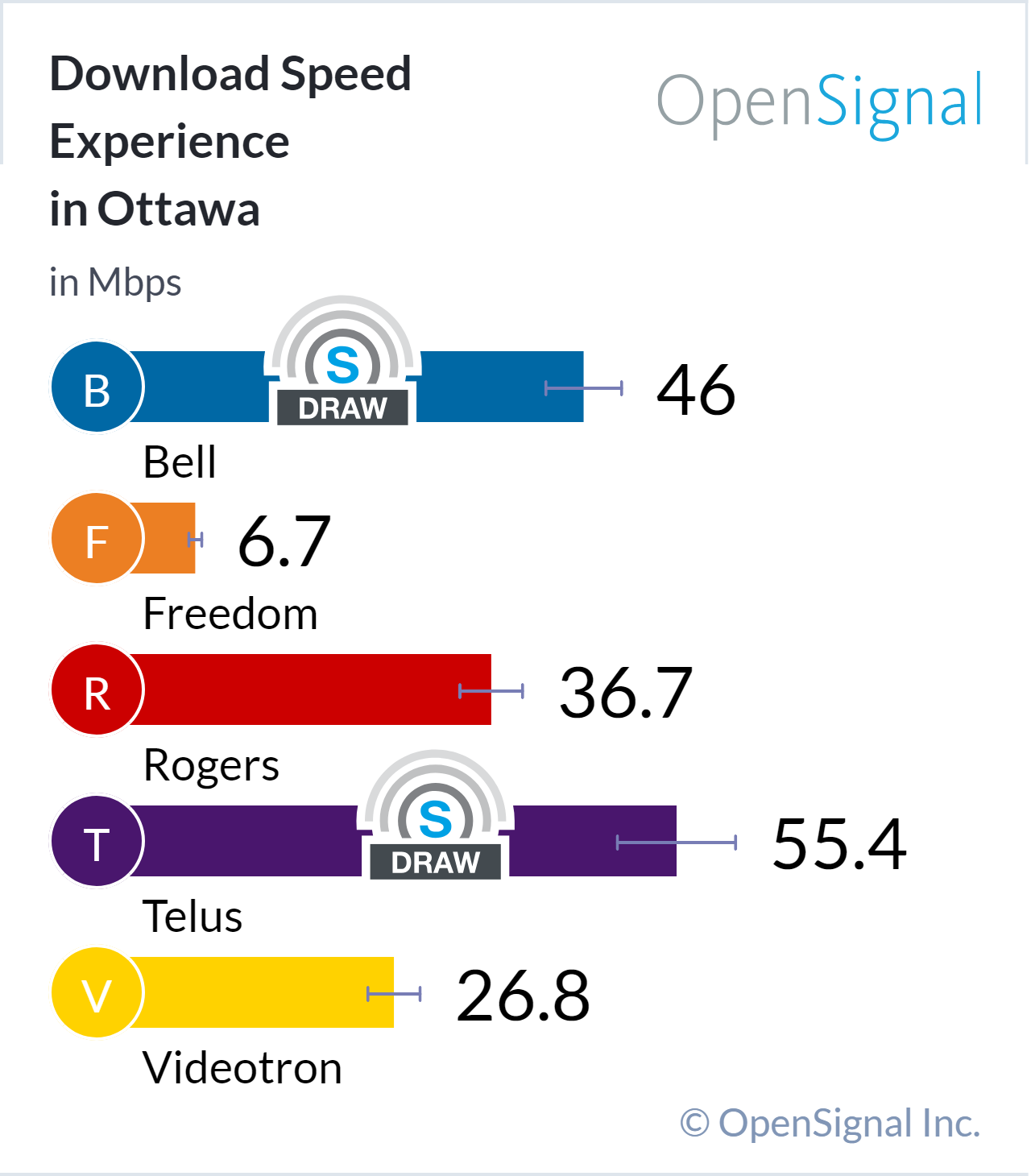OpenSignal, a U.K.-based company specializing in wireless coverage mapping, ranks Telus as the best overall Canadian mobile service provider in its February mobile experience report.
The report highlights the advancement of Canada’s 4G networks. The big three providers – Bell, Rogers, and Telus – all have reliable 4G services in metropolitan areas. Each carrier is rated based on its availability, video experience, download speed experience, upload speed experience, and latency experience collected from over 161 thousand devices and nearly 1.16 billion measurements.
Out of the three, Bell and Telus ranks top in video experience, delivering the most stable connection for high-resolution playback and earning a “very good” rating in OpenSignal’s report. In its Q3 2018 earnings call, Telus touted a wireless subscriber base of 9.2 million, just shy of Bell’s 9.48 million. Being able to maintain good service to their respective subscribers require strong infrastructure, which is the costliest part for any wireless service provider. On an international scope, only 11 out of 69 countries analyzed by OpenSignal have reached a “very good” score in this index.
All three carriers deliver over 35Mbps download speeds and exceed 60Mbps in several major cities. Telus has the highest download speed in several key cities including Quebec, Vancouver, and Ottawa, but loses to Bell in Toronto. Telus also wins in average 4G download speed with 49Mbps, besting Bell’s 43.9Mbps and Rogers’ 36.3Mbps.
Upload speed is evolving into an important metric for consumers. With the increasing adoption of cloud-based storage solutions and mobile video streaming, so has the demand for faster, more stable uploads. Rogers and Telus ties in this category, averaging 9.9Mpbs and 9.6Mbps respectively.
High raw speeds indicate faster transfer speeds, but network latency – the delay between sending a packet and receiving a response – is an equally critical component. The lower the latency, the faster the response, and therefore the more fluid the experience. OpenSignal’s report shows Telus having the lowest latency at 43.4ms. Bell sits in the middle at 45.3ms, while Rogers ends up last at 51.8ms.
Aside from the Bell, Telus, and Rogers, Freedom Mobile has also made progress in developing its network infrastructure, especially in major cities such as Ottawa and Toronto. At the end of Q3 2018, Freedom Mobile had a 1.4 million subscriber base, a 6.5 per cent increase over the previous quarter. While its network availability is expanding, it has trouble matching the speeds of the more established carriers.












